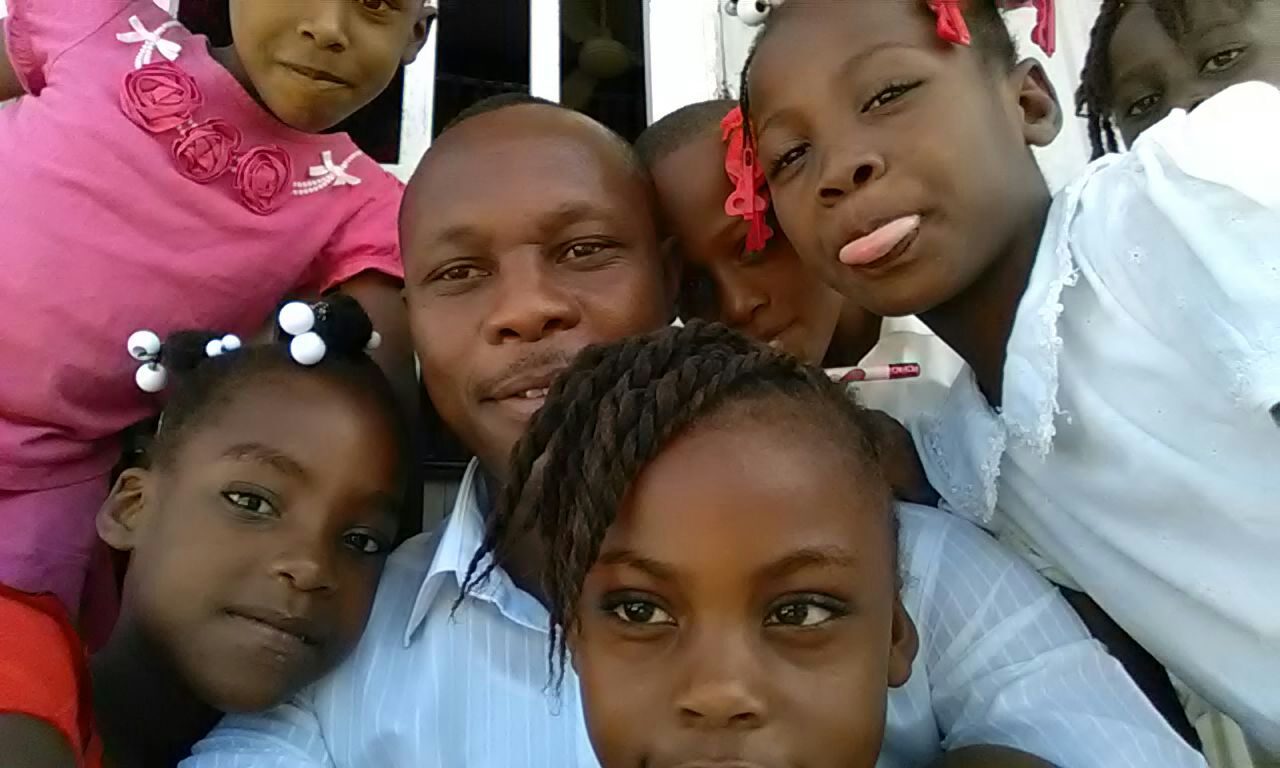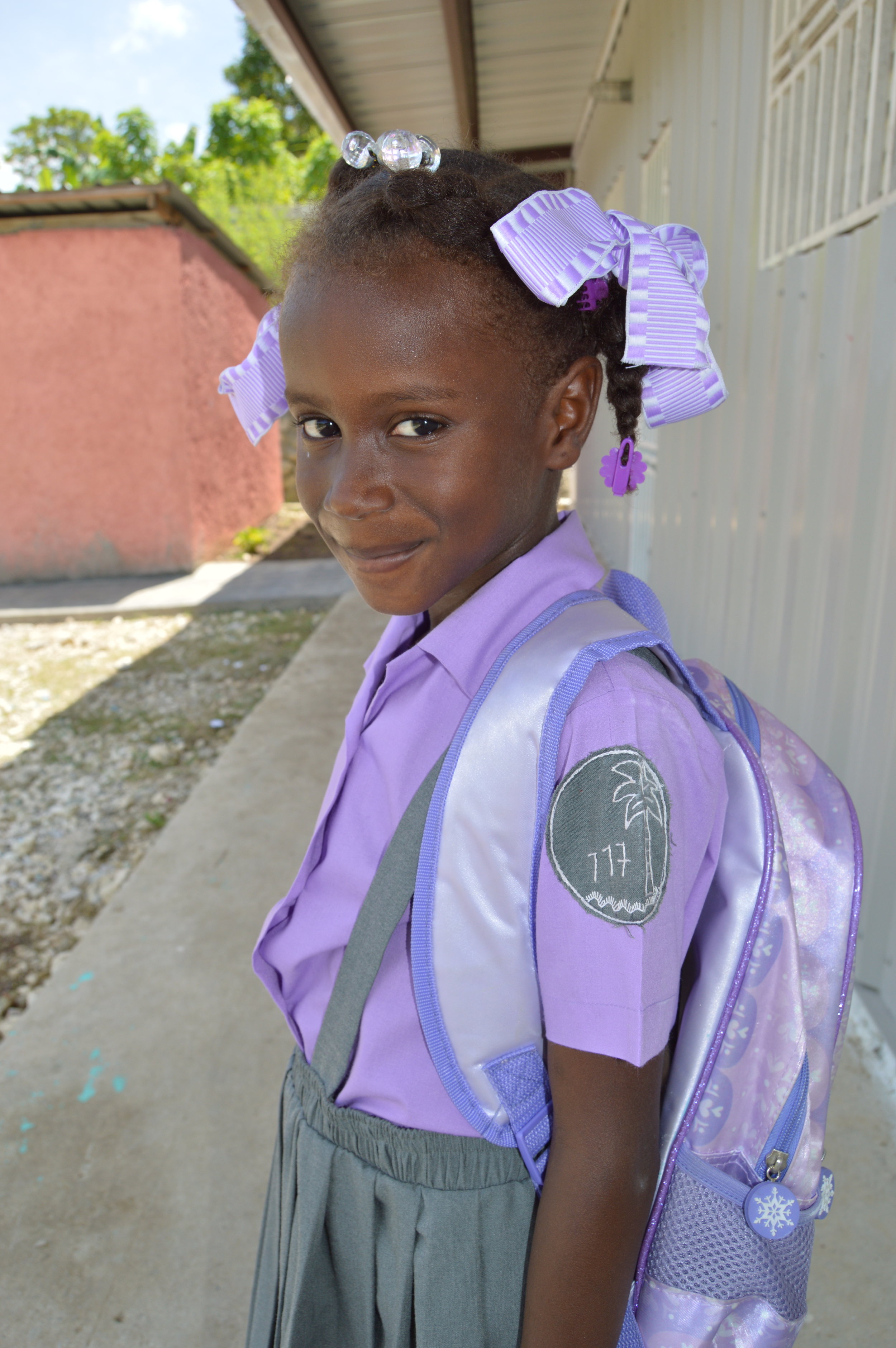BY SARAH SMITH
One week into the school year, Yvenson hadn’t been to a single class. He hadn’t written his name on a single sheet of paper, hadn’t played soccer at recess with his classmates, and hadn’t met his new teacher.
Last year wasn’t exactly a banner year for Yvenson. He struggled in the classroom and, with the help of his teachers, fought his way through some behavior struggles. When he wasn’t showing up to school this year, Greg, our principal, knew he had to take action. He went to visit Yvenson at home. There, Greg learned that the reason his parents had kept Yvenson from school was because they were ashamed. Ashamed of the behavior problems. Ashamed of the struggle of last year. For them, the best solution was to keep Yvenson home; he couldn’t struggle with his behavior if he didn’t go to school in the first place.
Yvenson (right) and Claudy, a work study student
In some way or another, we’re all left behind. We all have places we don’t want to show up to—because of fear, past failures, struggle, or shame. Some of us, if we’re lucky, have people that will come alongside us, fight for us, and walk with us as we navigate those struggles. Yvenson is one of those lucky ones.
Greg fought not only for Yvenson, but for our school’s DNA as a place where the left behind are advocated for and championed. He promised Yvenson and his parents that he and the staff would fight for him as he continues to take ownership of his education. He assured Yvenson that, no matter what the year before looked like, there is a place for him at Institution One 17.
Yvenson is back in school now. One of our work study students—Claudy—has taken on the role of his “big brother,” spending time building into him and tutoring him after school. It’s a picture of our students learning to do right and stepping into the stories of change and restoration that God’s calling them to while they help others do the same.
Yvenson’s story, still in progress, is a seamless combination of our core values: because Greg took action, because the staff is collaborating to advocate for him, because Claudy is empowering him to take ownership of his education, and because Yvenson knows that his story is precious to God, he is back in school with new chances to experience hope through education every day.












































